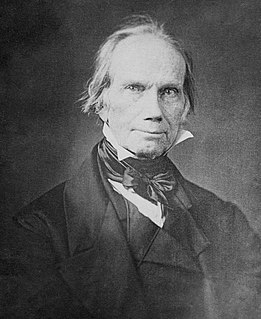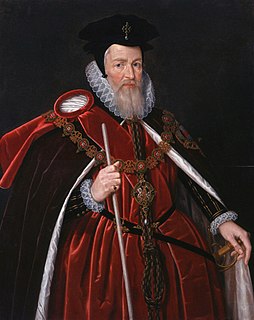A Quote by Henry Clay
A man must be a born fool who voluntarily engages in controversy with Mr. Adams on a question of fact. I doubt whether he was ever mistaken in his life.
Related Quotes
The question that faces every man born into this world is not what should be his purpose, which he should set about to achieve, but just what to do with life? The answer, that he should order his life so that he can find the greatest happiness in it, is more a practical question, similar to that of how a man should spend his weekend, then a metaphysical proposition as to what is the mystic purpose of his life in the scheme of the universe.
Mr. Beerbohm in his way is perfect ... He has brought personality into literature, not unconsciously and impurely, but so consciously and purely that we do not know whether there is any relation between Max the essayist and Mr. Beerbohm the man. We only know that the spirit of personality permeates every word that he writes ... He is without doubt the prince of his profession.
It is quite useless to declare that all men are born free if you deny that they are born good . Guarantee a man's goodness and his liberty will take care of itself. To guarantee his freedom on condition that you approve of his moral character is formally to abolish all freedom whatsoever, as every man's liberty is at the mercy of a moral indictment which any fool can trump up against everyone who violates custom, whether as a prophet or as a rascal.
It has been said that the people of this country are deeply interested in the humanitarian and philanthropic considerations involved in [the Eastern Question]. All must appreciate such feelings. But I am mistaken if there be not a yet deeper sentiment on the part of the people of this country, one with which I cannot doubt your lordships will ever sympathise, and that is - the determination to maintain the Empire of England.
When the Congress first met, Mr. Cushing made a motion that it should be opened with prayer . . . Mr. Samuel Adams arose and said he was no bigot, and could hear a prayer from a gentleman of piety and virtue, who was at the same time a friend to his country. He . . . had heard that Mr. Duche . . . deserved that character and therefore he moved that Mr. Duche . . . might be desired to read prayers to the Congress . . . . After (he read several prayers), Mr. Duche, unexpected to everybody, struck out into an extemporary prayer, which filled the bosom of every man present.
Today I believe that man cannot escape his destiny to create whatever it is we make - jazz, a wooden spoon, or graffiti on the wall. All of these are expressions of man's creativity, proof that man has not yet been destroyed by technology. But are we making things for the people of our epoch or repeating what has been done before? And finally, is the question itself important? We must ask ourselves that. The most important thing is always to doubt the importance of the question.
We are redeemed one man at a time. There is no family pass ticket or park hopping pass to life. One ticket - one at a time. Man doesn't vanquish hatred or bigotry. The target keeps moving. From the blacks to the Irish; atheists to Christians. But as always there are a few leaders: Ben Franklin, John Quincy Adams, Harriet Beecher Stowe, Abraham Lincoln, Fredrick Douglas, Booker T Washington, Ghandi and Martin Luther King. They know that the march toward freedom never ends, man must be ever vigilant and pray less with his lips and more with his legs.












































